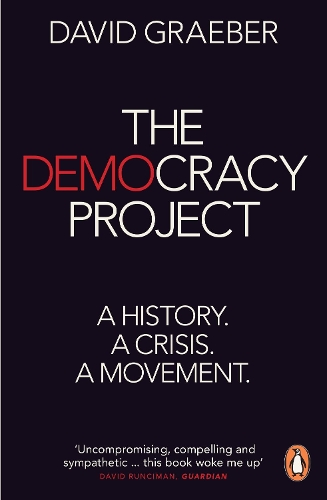
The Democracy Project: A History, a Crisis, a Movement
(Paperback)
Publishing Details
The Democracy Project: A History, a Crisis, a Movement
By (Author) David Graeber
Penguin Books Ltd
Penguin Books Ltd
25th June 2014
24th April 2014
United Kingdom
Classifications
General
Non Fiction
Revolutionary groups and movements
Political economy
339.22
Physical Properties
Paperback
352
Width 127mm, Height 198mm, Spine 19mm
260g
Description
The effects of the Occupy Wall Street demonstrations continue to reverberate throughout the world and can be seen in mass protests all around us, from Rio to Istanbul. Activist David Graeber, who was at the heart of the 99% movement, takes a provocative look at their actions and asks- why was it so effective What can we learn from their tactics And what can we all do now to make our world democratic once again Both a treatise on power and protest and an energetic account of contemporary events, The Democracy Project will change the way you think about political action. 'Captures the joys and fears of a movement that believed it was on the cusp of achieving something special.' John Kampfner, Observer 'Clear, pungent and right . . . a compact and incisive account of why capitalism has run with such a smash into the buffers.' Times Higher Education 'Graeber's talent is to take big, basic concepts such as debt and democracy and unpack them, forcing us to examine their implications for society . . . the book is a cool drink of water after so much dry, academic writing on the 'revolutions' of 2011.' Laurie Penny, New Statesman 'The most influential radical political thinker of the moment.' New Yorker
Reviews
Captures the joys and fears of a movement that believed it was on the cusp of achieving something special -- John Kampfner * Observer *
Author Bio
David Graeber is a radical anthropologist at Goldsmiths, University of London, who has been involved with the Occupy movement, most actively at Wall Street. He has written for many publications including Harper's, The Wall Street Journal, The Nation, and The Guardian. He is also the author, most recently, of the widely praised Debt: The First 5,000 Years, as well as many books on social organization and revolution including Towards an Anthropological Theory of Value, Fragments of an Anarchist Anthropology, Direct Action: An Ethnography.
